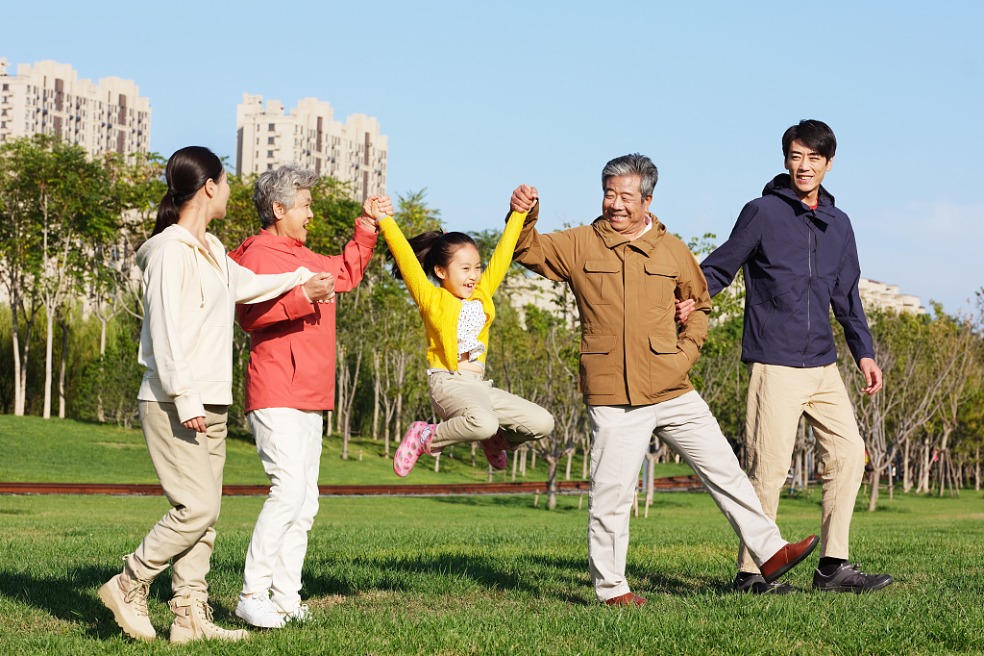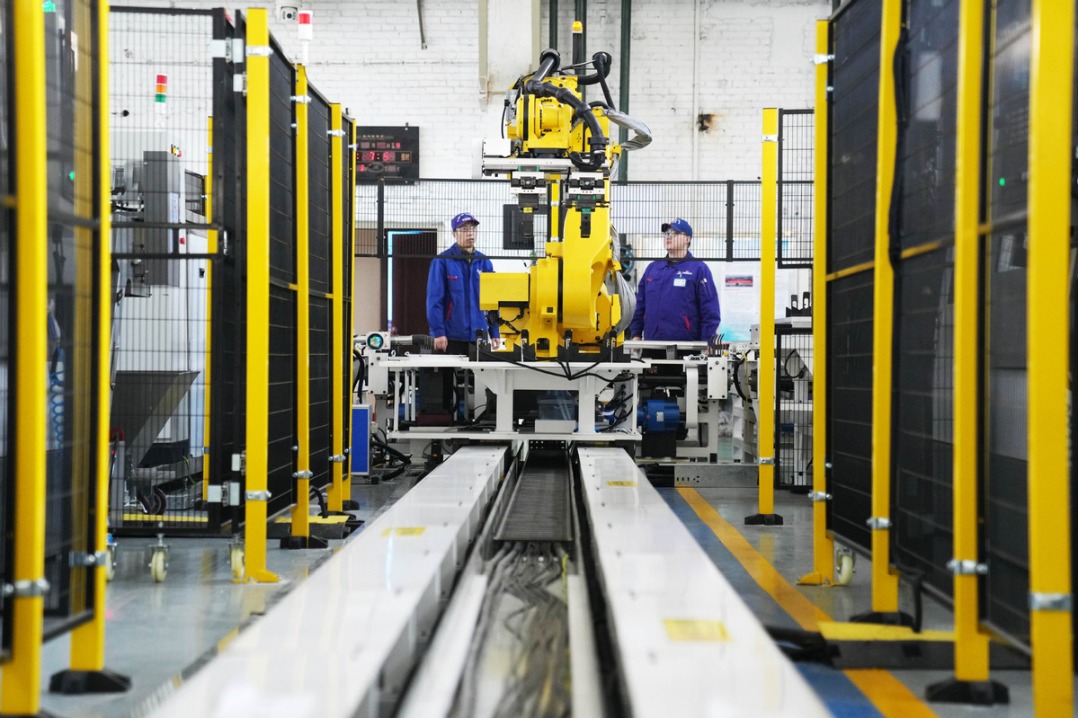Disabled children get help in Gansu

LANZHOU — As dawn breaks in Yongdeng county in Lanzhou, capital of Gansu province, dozens of children at the Hongmeng Disabled Persons' Service Center are guided by their rehabilitation therapists as they take part in various activities, including stretching their limbs, practicing walking and reciting sentences.
With support from the local government, the center has provided free treatment for more than 200 children with cerebral palsy, autism and mental disabilities over the past four years.
Many of the children uttered "mom" or "dad" for the first time or took their first steps at the center, and director Meng Caiping believes that early training will give them a chance to integrate into society.
In 2018, China established a national assistance system for the rehabilitation of disabled children that reinforced funding and institutional support for efforts to assist them. The move encouraged Meng to found the Hongmeng center, with assistance from Yongdeng's disabled persons' federation.
"Initially, there were only two physical therapy beds, but now the center has developed into a comprehensive rehabilitation institution with multiple departments, including physical therapy, speech therapy and personal training," Meng said.
Thirteen-year-old Tao Tao (pseudonym) was diagnosed with cerebral palsy when he was only 8 months old. He joined Hongmeng four years ago with the support of the county's disabled persons' federation. "Previously, he couldn't speak, walk or indicate his need to urinate or defecate. I had to stay at home all day taking care of him. I thought he would spend his life in a wheelchair," his mother said.
When Tao Tao first arrived at the center, his overall muscle strength was low, and the movement of his limbs was restricted. The center decided to continuously press, rub and stimulate his muscles, repeatedly calling out his name to guide him in performing movements.
Gradually, his arms and legs became more flexible, according to his therapist He Jingjing.
After 19 months of treatment, Tao Tao took his first steps. Now, he can walk independently and understand simple instructions, He said.
With the local government covering his annual rehabilitation training fee of 16,000 yuan ($2,248), Tao Tao's future looks brighter. His mother now envisions a time when he can take care of himself. Once burdened by years of caring for their children and social isolation, many parents like Tao Tao's mother are finding solace in the rehabilitation programs at the center, Meng said.
Despite repercussions such as scars and marks left by the children's scratching and biting during therapy, the center's employees remain devoted to their work, inspired by the belief that saving a child means saving a family.
Many Chinese families have benefited from the national assistance system for the rehabilitation of disabled children since its establishment in 2018. In Gansu, the number of designated rehabilitation institutions for disabled children has increased from 30 to 205 over the past few years.
The provincial government invests over 43 million yuan annually to support the institutions, and that figure is expected to increase to 63 million yuan this year. Some cities and counties also adopt diverse development models to include more disabled children between ages 6 and 17 in the rehabilitation assistance system.
With help from Hongmeng, more than 20 disabled children have enrolled in kindergarten and more than 30 have integrated into regular schools.
Xinhua







